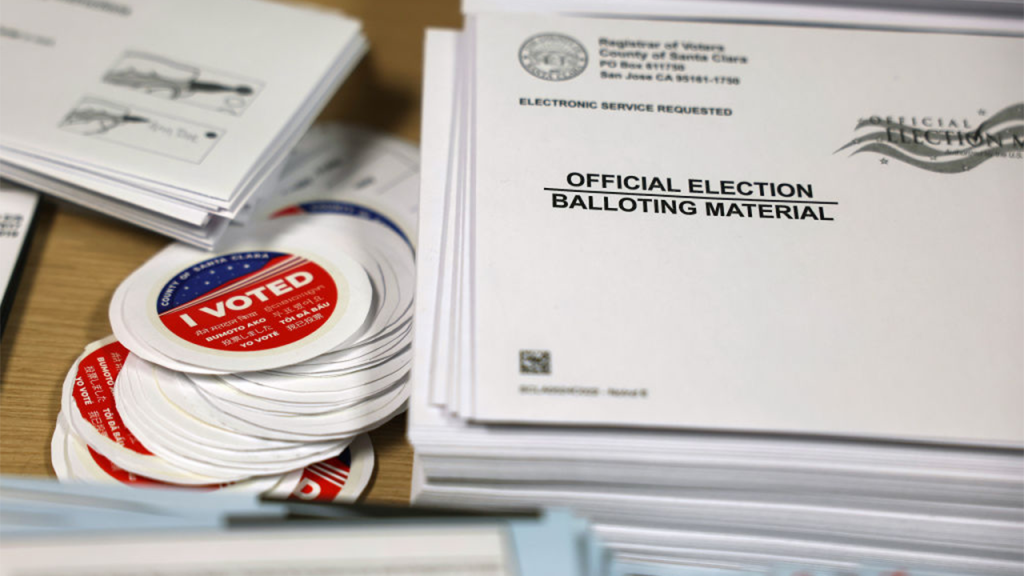A Woman’s Voting Fraud Involving Her Dog Raises Serious Questions About Electoral Integrity
In a bizarre case that has drawn attention to potential vulnerabilities in voter registration systems, a 62-year-old Costa Mesa, California woman named Laura Lee Yourex now faces multiple felony charges for allegedly registering her dog to vote and successfully casting ballots in the dog’s name. According to the Orange County District Attorney’s Office, Yourex has been charged with five felonies, including perjury, procuring false documents, casting illegal ballots, and registering a non-existent person to vote. If convicted on all counts, she could face up to six years in prison for this unusual form of election fraud.
The details of this case are both concerning and somewhat surreal. Yourex reportedly registered her dog, named Maya Jean Yourex, as a voter and then proceeded to submit mail-in ballots under the dog’s name during both the 2021 California gubernatorial recall election and the 2022 primary election. While the ballot cast during the recall election was counted, officials caught and rejected the primary election ballot. What makes this case particularly unusual is that Yourex herself reported her actions to the Orange County Registrar of Voter’s Office in October 2023, which then referred the matter to the District Attorney’s Office for investigation and potential prosecution. This self-reporting aspect adds an unexpected layer to what would otherwise be a straightforward case of voter fraud.
Social media played a significant role in documenting the fraud, as investigators discovered that Yourex had publicly posted about her dog’s voting activities online. In January 2022, she shared a photo showing her dog wearing an “I Voted” sticker alongside a ballot, essentially publicizing the illegal activity. Even more strikingly, after the dog had passed away, Yourex posted another photo in October 2023 showing Maya’s collar next to a mail-in ballot that had been addressed to the deceased animal, with the caption “Maya is still getting her ballot.” These social media posts not only provided evidence of the fraud but also suggest that Yourex may have been attempting to make a point about perceived flaws in the voter registration and verification system rather than trying to secretly influence election outcomes.
This case highlights potential weaknesses in California’s voter registration process, which requires eligible voters to complete a form with personal information and affirm their citizenship under penalty of perjury, but does not require proof of residence or identification for state elections. While first-time voters in federal elections must provide proof of residence and registration, the system appears to have been vulnerable enough to allow a non-human to be registered and to have a ballot counted in at least one instance. The Orange County District Attorney’s Office has not revealed the specific methods Yourex used to register her dog or which political party received the fraudulent votes, but the case raises important questions about verification procedures in the electoral system.
While this single instance of a dog being registered to vote might seem comical at first glance, it represents a serious breach of electoral integrity that undermines public trust in voting systems. Election officials and lawmakers across the country frequently debate the balance between making voting accessible to all eligible citizens and implementing sufficient safeguards to prevent fraud. Cases like this, though rare, provide ammunition for those who advocate for stricter identification requirements and verification processes, while others might argue that isolated incidents don’t justify measures that could potentially disenfranchise legitimate voters who lack certain forms of identification or face other barriers to providing documentation.
The prosecution of Yourex comes at a time of heightened national concern about election integrity, with Americans across the political spectrum expressing worries about various aspects of the electoral system. While large-scale voter fraud remains exceedingly rare according to numerous studies and investigations, individual cases like this one receive significant attention because they touch on fundamental questions about how we conduct elections in a democracy. As this case proceeds through the legal system, it will likely serve as a reminder of the ongoing challenge to balance accessibility and security in our voting procedures, ensuring that every legitimate vote counts while maintaining the integrity of the process that is central to democratic governance.


